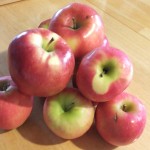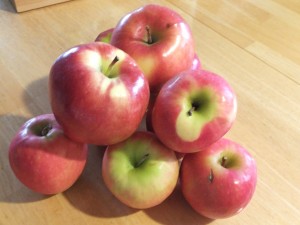“Compared to all other nuts, almonds are the most packed with nutrients and beneficial components.”

Here’s a neat infographic on the nutritional benefits and properties of almonds (from https://www.organicfacts.net/health-benefits/seed-and-nut/health-benefits-of-almonds.html)
The Rundown
What almonds do, in short
- Help maintain overall health of the nervous system
- Keep your heart healthy
- Help maintain a healthy amount of good cholesterol while reducing bad cholesterol (this also reduces your risk of getting heart disease)
- Aid in the maintenance of healthy hair, skin, & teeth
- Prevent colon cancer (due to their high fibre content)
- Regulate blood sugar (as they contain potassium)
- Help you lose weight
- Alkalize your body
- Keep your energy up and raise your metabolism
—
Almonds help maintain heart health
The monounsaturated fats, protein, potassium, and vitamin E that almonds have reduces the risk of heart diseases.
—
Almonds help you lose weight
You may think almonds will make you gain weight due to their fat content, but the fat they contain is unsaturated. This is good, natural fat, which fills you, making you less likely to reach for a candy bar or something junky later. The dietary fibre in almonds also contributes to a full-stomach feeling, and helps maintain consistent bowel movements and prevents constipation, leading to a good-working system that isn’t holding onto fat but is being consistently cleaned-out!
—
Almonds alkalize your body
When your body is too acidic, you can experience low energy, weight gain, poor immune function, and develop osteoporosis. Almonds counteract these symptoms because they are alkaline.
—
Almonds increase Energy & increase your Metabolism
Almonds release energy slowly and keep you boosted throughout the day because they contain manganese, copper, and riboflavin.
—
Vitamins, Minerals, and Nutrients
- B vitamins
- Vitamin E – eliminates free radicals. Free radicals cause damage in your body. Studies have shown that people are less likely to get heart disease if they consume high levels of vitamin E.
- Calcium and Phosphorous – help keep your bones and teeth healthy. Just make sure you’re getting enough Vitamin D, which will allow your body to properly absorb these minerals.
- Iron
- Manganese
- Magnesium – can help your body avoid a heart attack
- Zinc
- Selenium
- Niacin
- Copper
- FIBRE 🙂
- Phytosterols
- Unsaturated fat (aka good fat)
- ANTIOXIDANTS
- Folic acid – reduces homocysteine, which causes plaque buildup in arteries
- Potassium – regulates blood pressure
- Protein
—
Fatty Acids
We need to get our fatty acids from food because our bodies can’t create them itself. Almonds contain healthy fatty acids – linoleic and linolenic (see below, Anti-Inflammatory, for more info).
—
Pregnancy
The folic acid almonds contain helps reduce birth defects and stimulates healthy cell growth and tissue formation.
—
Properties
Food for your Brain – Protect against Alzheimer’s
Almonds have 2 important nutrients your brain needs: riboflavin and L-carnitine
These have been found to increase brain activity and fight Alzheimer’s
—
Anti-inflammatory
The linoleic and linolenic acids in almonds (which are fatty acids) reduce inflammation




